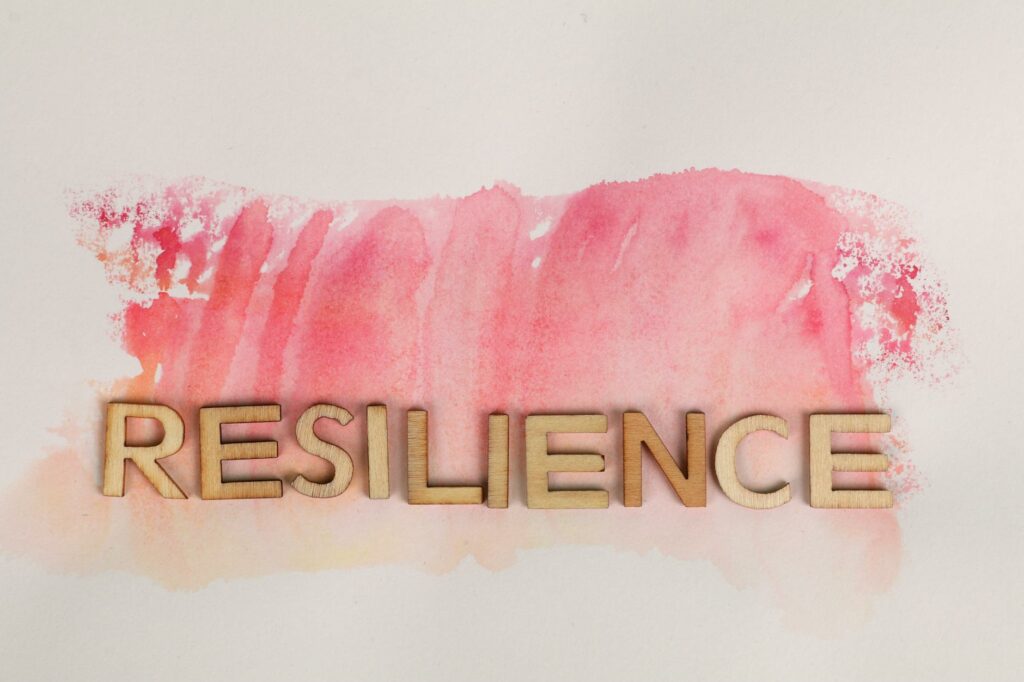Life is filled with challenges and adversities, and our ability to navigate these difficulties significantly impacts our overall well-being and success. Resilience, the capacity to recover quickly from difficulties, is a crucial trait that allows individuals to cope with stress, overcome obstacles, and thrive despite setbacks. Building resilience is not about avoiding stress or adversity but developing the skills and mindset to handle them effectively. In this post, we will explore what resilience is, why it is important, and provide practical tips for building resilience to help you bounce back from adversity.

Understanding Resilience
Resilience is often described as the ability to “bounce back” from difficult experiences. However, it’s more than just recovery; it’s about adapting and growing from those experiences. Resilient individuals are not immune to stress or hardship; instead, they face these challenges head-on and use them as opportunities for growth and learning.
The Importance of Resilience
Resilience is crucial for several reasons:
- Emotional Well-being: Resilient people tend to experience lower levels of stress, anxiety, and depression. They are better equipped to handle negative emotions and maintain a positive outlook.
- Physical Health: High levels of resilience are associated with better physical health. Resilient individuals are more likely to engage in healthy behaviors, such as regular exercise and adequate sleep, and have stronger immune systems.
- Performance and Productivity: Resilience enhances problem-solving skills and creativity, leading to improved performance in both personal and professional settings. Resilient individuals are more likely to persevere in the face of challenges and achieve their goals.
- Relationships: Resilience fosters strong, supportive relationships. Resilient individuals can communicate effectively, manage conflicts, and provide support to others in times of need.
Building Resilience: Practical Tips
Building resilience involves developing a combination of attitudes, behaviors, and skills. Here are some practical tips to help you cultivate resilience:
1. Develop a Positive Mindset
A positive mindset is the foundation of resilience. It involves viewing challenges as opportunities for growth rather than threats. Here’s how to develop a positive mindset:
- Reframe Negative Thoughts: When faced with a challenge, try to reframe negative thoughts into positive ones. Instead of thinking, “I can’t do this,” try, “This is an opportunity to learn and grow.”
- Practice Gratitude: Regularly reflecting on what you are grateful for can shift your focus from negative to positive aspects of life. Keep a gratitude journal and write down three things you are thankful for each day.
- Visualize Success: Imagine yourself successfully overcoming challenges. Visualization can boost confidence and motivate you to take action.
2. Build Strong Relationships
Strong, supportive relationships provide a buffer against stress and adversity. Here’s how to build and maintain healthy relationships:
- Connect with Others: Make an effort to connect with family, friends, and colleagues. Attend social events, join clubs or groups, and reach out to others regularly.
- Communicate Effectively: Open and honest communication fosters trust and strengthens relationships. Practice active listening and express your thoughts and feelings clearly.
- Offer and Seek Support: Be willing to offer support to others and seek help when needed. Helping others can enhance your own resilience, while seeking support provides a valuable resource during difficult times.
3. Take Care of Your Physical Health
Physical health and resilience are closely linked. Maintaining a healthy lifestyle can enhance your ability to cope with stress and adversity. Here’s how to take care of your physical health:
- Exercise Regularly: Physical activity boosts mood, reduces stress, and improves overall health. Aim for at least 30 minutes of moderate exercise most days of the week.
- Eat a Balanced Diet: Nutrition plays a crucial role in mental and physical health. Consume a balanced diet rich in fruits, vegetables, lean proteins, and whole grains.
- Get Adequate Sleep: Quality sleep is essential for emotional and physical resilience. Aim for 7-9 hours of sleep each night and maintain a consistent sleep schedule.
- Practice Relaxation Techniques: Techniques such as deep breathing, meditation, and yoga can reduce stress and promote relaxation.
4. Set Realistic Goals and Take Action
Setting and achieving goals can enhance self-esteem and provide a sense of purpose. Here’s how to set realistic goals and take action:
- Set SMART Goals: Make sure your goals are Specific, Measurable, Achievable, Relevant, and Time-bound. Break larger goals into smaller, manageable steps.
- Take Initiative: Don’t wait for opportunities to come to you. Take proactive steps to achieve your goals and address challenges.
- Celebrate Progress: Acknowledge and celebrate your achievements, no matter how small. Recognizing progress can boost motivation and confidence.
5. Learn from Experience
Adversity can be a powerful teacher. Reflecting on past experiences and learning from them can enhance resilience. Here’s how to learn from experience:
- Reflect on Past Challenges: Think about how you’ve handled past challenges. What strategies worked well? What could you have done differently? Use these insights to inform your approach to future challenges.
- Embrace Failure as a Learning Opportunity: Instead of viewing failure as a setback, see it as an opportunity to learn and grow. Analyze what went wrong and what you can do differently next time.
- Seek Feedback: Constructive feedback from others can provide valuable insights and help you improve. Be open to feedback and use it as a tool for growth.
6. Practice Self-Compassion
Self-compassion involves treating yourself with the same kindness and understanding that you would offer to a friend. Here’s how to practice self-compassion:
- Be Kind to Yourself: Acknowledge your mistakes and shortcomings without harsh self-criticism. Practice self-kindness and offer yourself words of encouragement.
- Accept Imperfection: Understand that nobody is perfect and that making mistakes is a natural part of the human experience. Embrace your imperfections and focus on continuous improvement.
- Take Care of Your Emotional Needs: Pay attention to your emotional well-being and take steps to address your needs. Engage in activities that bring you joy and relaxation.
7. Develop Problem-Solving Skills
Effective problem-solving skills are essential for resilience. They enable you to identify solutions and take action in the face of challenges. Here’s how to develop problem-solving skills:
- Identify the Problem: Clearly define the problem you are facing. Break it down into smaller components if necessary.
- Generate Solutions: Brainstorm potential solutions without judgment. Consider all possible options and evaluate their pros and cons.
- Take Action: Choose the best solution and take action. Be willing to adapt and make changes as needed.
8. Cultivate a Sense of Purpose
Having a sense of purpose provides direction and motivation, especially during difficult times. Here’s how to cultivate a sense of purpose:
- Identify Your Values: Reflect on what is most important to you. What values and principles guide your actions and decisions?
- Set Meaningful Goals: Set goals that align with your values and provide a sense of purpose. Pursue activities and projects that are meaningful to you.
- Contribute to Something Larger: Engage in activities that contribute to the greater good, such as volunteering or participating in community service. Helping others can provide a sense of purpose and fulfillment.
9. Practice Mindfulness
Mindfulness involves being present in the moment and observing your thoughts and feelings without judgment. Here’s how to practice mindfulness:
- Mindful Breathing: Focus on your breath and observe the sensation of each inhale and exhale. If your mind wanders, gently bring your attention back to your breath.
- Body Scan Meditation: Pay attention to different parts of your body, noticing any sensations, tensions, or discomfort. Move your attention slowly from your toes to your head.
- Mindful Walking: Walk slowly and pay attention to the sensation of your feet touching the ground and your surroundings. Observe the sights, sounds, and smells around you.
Overcoming Barriers to Building Resilience
Building resilience is a lifelong process, and it’s not uncommon to encounter barriers along the way. Here are some common barriers and tips to overcome them:
1. Fear of Failure
Fear of failure can prevent you from taking action and pursuing your goals. To overcome this fear, reframe failure as a learning opportunity. Focus on what you can learn from the experience and how you can use that knowledge to improve.
2. Negative Self-Talk
Negative self-talk can undermine your confidence and resilience. Challenge negative thoughts by questioning their validity and replacing them with positive affirmations. Practice self-compassion and remind yourself of your strengths and accomplishments.
3. Lack of Support
A lack of social support can make it difficult to build resilience. Make an effort to connect with others and seek support from friends, family, or support groups. Don’t be afraid to reach out for help when needed.
4. Burnout
Burnout can result from prolonged stress and overwork, making it difficult to build resilience. To prevent burnout, prioritize self-care and set boundaries to protect your time and energy. Take regular breaks and engage in activities that bring you joy and relaxation.
Conclusion
Building resilience is a dynamic and ongoing process that involves developing a combination of attitudes, behaviors, and skills. By cultivating a positive mindset, building strong relationships, taking care of your physical health, setting realistic goals, learning from experience, practicing self-compassion, developing problem-solving skills, cultivating a sense of purpose, and practicing mindfulness, you can enhance your resilience and better navigate life’s challenges.
Remember, resilience is not about avoiding stress or adversity but about developing the capacity to cope with and grow from these experiences.
